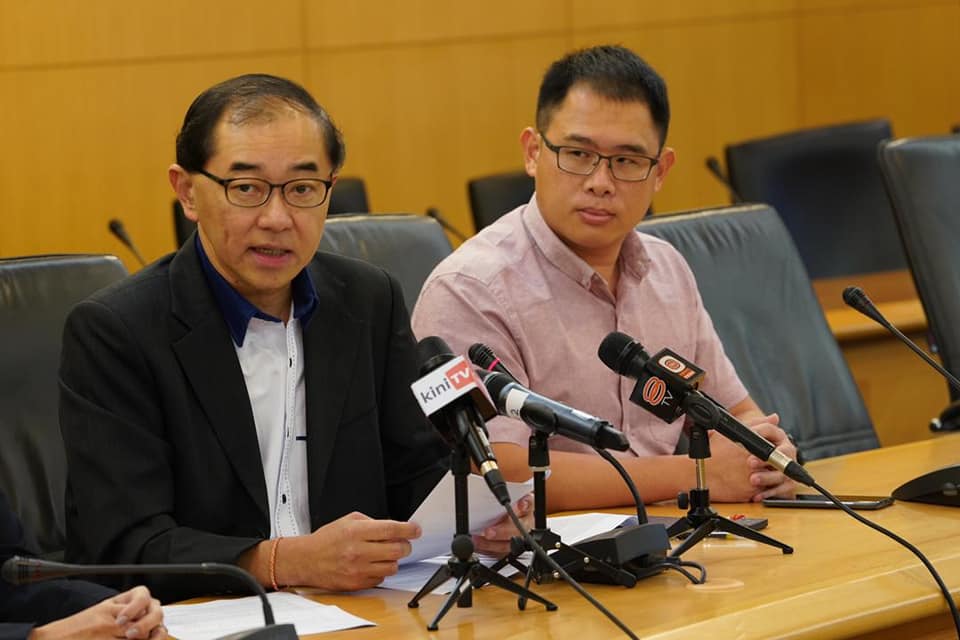KUALA LUMPUR, Feb 3 — MCA told Health Minister Dzulkefly Ahmad today to clarify claims that public hospitals in Malaysia regularly suffer a shortage of essential antibiotics.
MCA deputy president Dr Mah Hang Soon also questioned why the Ministry of Health (MOH) should withhold antibiotic usage, in response to Health director-general Dr Noor Hisham Abdullah denying allegations of frequent interruptions in MOH hospitals’ supply of antibiotics.
CodeBlue reported a survey run by Dr Timothy Cheng from Universiti Malaya Medical Centre in December 2019 and last month among government doctors who alleged antibiotic shortages in their hospital over the past year. They said this enhanced drug resistance because of the use of alternative medicines, worsened patients’ conditions, and lengthened hospital stays.
Dr Noor Hisham, however, told CodeBlue that MOH was simply controlling usage of antibiotics to curb antimicrobial resistance, while Deputy Health Minister Dr Lee Boon Chye said antibiotics were unlikely to run out because many of them are cheap and have generic alternatives.
“Is the antibiotics shortage-or-control intentional as one method by Pakatan to enrich private pharmaceutical companies as patients are indirectly forced to purchase prescription drugs from private pharmacies?” Dr Mah said in a statement.
Most doctors in Dr Cheng’s survey, however, indicated that antibiotic shortage in government hospitals was a years-long problem. Pakatan Harapan only took power less than two years ago in May 2018.
“Why should MOH withhold the usage of antibiotics? These drugs are not for long-term treatment like HIV or hypertension, but prescription-based as and when the need arises. Could budgetary slashes be the main reason for the antibiotic shortages or for MOH to withhold its usage?” Dr Mah questioned.
Dr Mah told the Health DG to get real antibiotics requirements on the ground from medical officers and nurses doing their rounds in public hospitals.
“Worse still, when patients with flu-like symptoms are deprived of their medical needs, others around, be they the nurses treating the patient or family and friends in regular contact with him/her, [are] also equally susceptible from contracting the flu, thus spreading it to others.”
According to Dr Cheng’s survey with 56 respondents, about 68 per cent of those who complained about antibiotic shortages said this happened at least once every two to six months in their public hospital. A whopping 85 per cent of government doctors claimed that antibiotic supply shortfalls were not a new problem, allegedly occurring over the past one to more than five years. Over half of respondents complained that antibiotic shortages in their MOH hospital lasted from one to six months.
The government doctors surveyed attributed the alleged antibiotic supply interruptions to small hospital budgets, poor planning, and shortages from the main supplier.
The most common type of antibiotics that doctors claimed had run out in public hospitals were beta-lactamase inhibitors, while other less frequent complaints of empty stocks involved cephalosporins and penicillins. A few also alleged shortages of antibiotics like macrolides, fluoroquinolones, and carbapenems.
Beta-lactamase inhibitors, cephalosporins, penicillins, and macrolides are common antibiotics that are even used in outpatient care as first-line treatment for common infections, such as bacterial respiratory tract infections, sexually transmitted diseases, and skin infections. Fluoroquinolones are less commonly used than those antibiotics, whereas carbapenems are only provided in intravenous form in hospitals, as they’re reserved for more serious infections.








